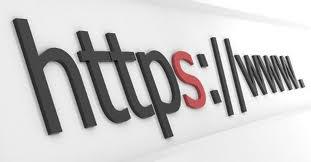Online shopping has grown to be widely used within the past several years. Billions are spent everyday by shopping online. The biggest reason driving the rise of online shopping would be the availability of the modern technology and the use of the internet. Anyone can access to numerous shops by a click of a button and shop as much as they like by simply going online. But how many of us actually care about the safety when we shop online? Here are some basic tips to shop online safely without being a victim of online identity theft.
1. Use credit cards over debit or bank cards: Certainly not the most typical suggestions, but if you are liable, you really should. Credit cards

2. Be smart: If you are considering to use an unknown or perhaps new site, do your homework initially. If you fail to find a physical address, telephone no or even a customer support email address, that should be enough to be suspicious about that site. There are plenty of fraudsters around attempting to make people fool. If something sounds too good to be true, it probably is!
3. Check the site security: If you are using a less known site, then make sure it is a secure site. You are able to determine if a website is safe from the Web address. A protected site begins with HTTPS:// rather than HTTP://. Protected websites should also provide a little padlock image within the upper/lower corner of the display(Depending on the browser)
4. Do not use public computers: Should you use a shared computer, for example in a local library, at the office or even a Internet cafe, you are unable to manage who else is going to be using that computer after you use them. Also you are unable to determine if there is any virus in that computer, for that reason simply stick to your personal computer using a secure connection.
5. Look out for invisible fees: If you decide to buy any items then you discover you have to pay delivery and handling cost as well as a admin cost on returned items, simply move on. It probably will not be really worth to buy from them.
6. Don’t allow to save your personal data: Even though it could make purchasing less difficult when they have your personal details, credit card details saved from your previous shopping, in case of a safety violation on their site such as hacking, your data may fall in to cyber criminals hand. Don’t be lazy, just spend an extra minute or two to fill them again. And don’t forget to instruct the site not to save your personal data on their database.
You can read some further information at our safety page
This blog is brought to you by Bonsoni.com, an online marketplace for buying and selling items, properties, finding a flat share, jobs, local services, free to collect items and many other categories. Our aim is to provide a simple, safe, friendly but nimble platform for people to connect with each other, and trade goods and services.

